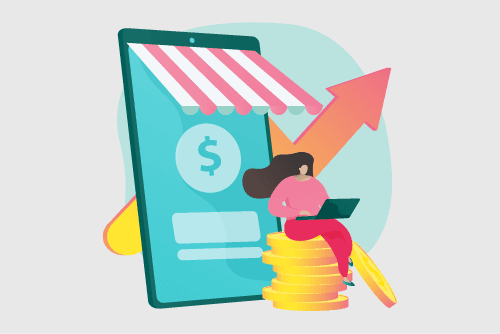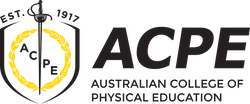Starting a Business From Home: 7 Essential Steps

Starting a home business can be challenging – you need to finesse an idea, make it unique, turn it into something profitable, and weather the costs and setbacks along the way.
But with careful thought and preparation, starting a business from home can help you build a creative, self-directed work life where your investments pay off. That’s why we’ve created this 7-step guide to help you set up your own home-based business.
1. Come up with a business idea
Set yourself up for success by brainstorming potential business ideas in areas that you’re passionate about, and have existing skills and talents in. Maybe your new business will be a spin-off from your career, or maybe it’ll be a way to monetise your favourite hobby or interests.
Some home-based business ideas for those starting out their own business or side hustle include:
Ideas can be for a business you’ll work on full-time or part-time, or as an after-hours side hustle.
The Best Home Business Ideas: 30 Businesses You Can Start Today
2. Assess demand and profitability
You’ve got an idea? Great! Now it’s time to figure out if the world is ready for it.
This involves asking market research questions such as:
Is there a market for my idea?
Will people be interested in what you have to offer? What is your target demographic? If it’s a niche idea, will you be able to take it internationally so as to maximise your potential market? If it’s not niche, consider whether the market is saturated and whether you need to go in a different direction, or hone in on what will distinguish you in the competitive marketplace.
What’s my unique selling point?
What will you do that will differentiate yourself from what everyone else in the market is doing? Can you put a unique spin on your business, or offer unique expertise? Can you offer better quality than what’s already out there? Or a lower price? Sometimes you are the unique selling point. For example, if you’re thinking of becoming a freelancer, your professional experience, expertise in a particular area, or your creative vision is what allows you to do work that nobody else could.
What will it cost to offer my services or products?
This is a good time to make some calculations, factoring in the cost of any tools or equipment you need to buy and raw materials. Don’t forget to factor in the costs of your labour as well!
What can I charge or make for my services or products?
Answering this question involves estimating costs and then adding a healthy profit margin on top. It also involves looking at comparable businesses and seeing what they’re charging. Decide whether you’re prepared to compete with that price point, or offer reasons why you’re charging more. Some business models – such as relying on ad revenue – won’t allow you to set prices. This means you’ll need to research what targets you’ll need to hit to make money, and how much you can expect to make. You can then decide if that amount sounds reasonable for the work you’re planning on putting in.
Use your answers to assess how realistic your business idea is. It may be that you need to adjust your vision to be profitable. Maybe to turn your knitting hobby into a lucrative business, for example, you’ll need to use cheaper quality yarn to what you’re used to. Or maybe you need to sell a small number of items to a niche customer-base willing to pay what they’re worth.
3. Determine whether it will work as a home-based business
The best idea for a business is something you want to work on and that you can stay passionate about over time, and through the challenges of making a business work. But you also need to consider what makes a good home-based business. These are business ideas that:
Allow you to stay at home and or work online
Although you may need to travel for meetings, markets, and errands, a good at-home business shouldn’t require you to have a brick-and-mortar storefront, or rent specialty office space. Read more about starting an online business in Australia.
Will have relatively low startup costs
You always need to spend money to make money, but at-home businesses will allow you to make returns on your investments within a relatively short period of time.
May allow you to earn passive income
Passive income requires little effort to accumulate. You might write a single ebook, for example, and then allow the sales to come in without having to make new content; or if you use public transport, you could rent your car to others without having to change your regular routine or do much beyond the minimal car maintenance you’d do anyway.
Won’t take over your whole house
Work at home can be contained to a home office, workshop, or studio space, or may be as small as a single desk.
Don’t require outside guidance
Sole proprietorship usually entails working alone, so while you can call on mentors, other small business owners, or startup coaches for advice, most of the day-to-day tasks can be done by just you. To make sure you’re across everything you need to run a business by yourself, you may want to look into upskilling before getting started.
Meet zoning regulations
Check that your business idea is not restricted in the zone you live in – for example, some residential zones won’t allow you to have over a certain number of cars arrive to your premises on a given day, which may be an issue if you’re wanting clients or students to come to your house.
4. Brush up on your business skills
People who are great at upcycling, or YouTube, or who are talented in a particular creative skill don’t always see themselves as business people. Luckily, business and technical skills are learnable. Some skills you should brush up on (depending on your business idea) include:
You can find online resources to help you gain the know-how required to run a successful home business. You can also get advice from a business coach or mentor, or an accountant or bookkeeper. Taking a short course in business management or small business administration can also be helpful in honing your business skills, and short courses in IT will improve your confidence in independently handling the technological side of your business.
5. Create your business plan
Once you’re confident that you’re across your business idea and have the skills you need to run a successful business, it’s a good idea to formalise it into a plan. A plan includes:
A plan is necessary if you need a business loan. Even if you don’t, it allows you to clarify what you’re planning to do, why you want to do it, how you intend to make money and your overall business structure. This is also a great stage to get feedback from others, who will be able to point out if you’re missing any important details.
What Covid-19 Means for Small Businesses: The Long-Term Outlook
6. Set up ABN, tax, insurance and registrations
When your planning is complete, it’s time to take the leap and become a business!
To do so, you may need to:
Set up an ABN with the Australian Tax Office
You may also need to register for GST depending on your expected turnover.
Get public liability insurance
This is relevant if customers will be coming into your home as it protects if someone gets injured on your property. It also protects you against property damage.
Get professional indemnity insurance
This is relevant if you’re providing various professional services as it protects you against potential claims that you’ve given bad advice or did not administer a service correctly.
Consider further insurance
Consider if income protection insurance or small business insurance is appropriate for your situation.
Registrations
Research whether there is an appropriate accrediting or registering board for your industry, and take out a professional membership if relevant. This membership may be optional, so it’s worth weighing up benefits memberships provide – such as training opportunities, discounts, promotion, and building trust with potential customers – against the cost.
Organise finances
If appropriate, apply for business loans or a credit card or bank account for your business.
Tax Tips for Side Hustles & Small Businesses
7. Start promoting your business
Once you’re open for business, you need to attract customers. Some of the best promotion strategies are free or inexpensive – like building word-of-mouth referrals; making dedicated social media accounts on LinkedIn, Facebook, Instagram; setting up a website; and getting included in local business listings.
Build an online presence
An online presence is a particularly good way to explain what you offer and at what prices, and to showcase your talents through an online portfolio (relevant for people starting a photography business or other creative venture to showcase your work) and CV. It may be worth considering Search Engine Optimisation (SEO) to make sure your business gets featured prominently when users make related web searches.
Think about branding
Depending on your business, it may be appropriate to put thought into branding such as making a logo, and having a consistent style across your materials. If figuring out the perfect typeset and images for your business sounds overwhelming, you can get the help of someone who specialises in branding. If your business is predominantly online and complex, or involves e-commerce, you may also benefit from the services of a web developer, although free or low-cost templates are available for you to use.
Create promotional materials
It may also be a good idea to print up business cards, flyers, or even pens, hats, and t-shirts depending on the nature of your business, and how you think your target market is most likely to find out about you. A printed flyer at a music store might be effective marketing for someone starting out as a guitar teacher; or a set of business cards at the bottom of your bag may be useful if you’re meeting potential clients at conferences. Often businesses that sell handcrafts online include little goodies like branded postcards or knick-knacks to ensure they stay in the minds of previous customers.
FAQ
Businesses that generate passive income are also profitable compared to the cost and effort of entering the market. Things like making a successful app that users are prepared to buy, or writing an ebook that makes solid sales, or preparing an informative online course will allow you to earn money on an ongoing basis with only one initially large time investment and smaller subsequent investments such as marketing, answering enquiries about your product, and updating content.
Starting a business from home can be an exhilarating and rewarding venture. Need to brush up on your business or digital skills first? Find the course that will get you started off on the right foot.
Browse Results
Diploma of Nursing (SA Only) HLT54115
Build a career that’s meaningful, fills you with a sense of purpose, and provides diverse job opportunities, with this Diploma of Nursing course. Offered via a blend of on-campus and online learning the HLT54115 Diploma of Nursing is the ideal starting...




Certificate IV in Building and Construction (Building) (VIC Only) CPC40110
If you are an aspiring or working tradesperson, here is your foundation for success. This is your first step towards starting your own building business and preparing for the builders registration. We understand that you could be a busy tradie by day,...


Graduate Diploma in Management
The Graduate Diploma in Management is an online postgraduate qualification that is ideal for busy senior managers, with a potential entry pathway through any of our Graduate Certificates and study that is highly supported, fits into your schedule, and...


Graduate Certificate in Management
The Graduate Certificate in Management is an online postgraduate qualification that is designed for newer and ambitious professionals, with entry possible through management experience alone and a study structure that easily accommodates full-time work...


Diploma of Building and Construction (Building) (VIC Only) CPC50210
Prepare for registration as a Builder with the Diploma of Building and Construction (Building) (CPC50210) Gain the skills & knowledge to run your own business Study when it suits you – online & on campus options available...


Building Leadership Programme (VIC ONLY) CPC40110 ,CPC502110
BAA is proudly partnered with Victoria University to offer our students higher education opportunities. Whether students are after an alternative way to gain entry into a degree, or simply want to try out a study path so they can confirm their longer-t...


Bachelor of Dance Education
Australia’s first Bachelor of Dance Education! Delivered through ACPE, this is a specialist professional qualification that is unique in Australia. Units are provided by highly qualified and experienced professionals, empowering you with all the knowle...


Bachelor of Education (Physical & Health Education)
If you’re keen to pursue a career in physical and health education, the Bachelor of Education (Physical and Health Education) will provide you with the graduate qualification to become a PDHPE teacher. Based on the Graduate Outcome Survey 2021, ACPE wa...


Associate Degree of Sport Business
Get a higher education qualification in two years when studying full-time! Based on the Bachelor of Sport Business in terms of content, the Associate Degree of Sport Business offers students the opportunity to get into the workforce quicker or alternat...


Bachelor of Dance Practice
The Bachelor of Dance Practice is a specialised degree that will equip you with the skills and experience to become a professional in the dance industry. The course develops artistry, choreography, performance, educational and organisational skills for...


Bachelor of Health Science (Exercise)
The Bachelor of Health Science (Exercise) offers the perfect career path for those looking to enhance their knowledge and skills through further studies in physiotherapy, exercise physiology, and other health professions. You will come to understand ho...


Bachelor of Sport Coaching (Strength and Conditioning)
To address the high demand for sport coaches and professionals in Australia, the Bachelor of Sport Coaching (Strength and Conditioning) is a specialist degree fostering the coaching, administrative, and professional skills necessary for a fulfilling ca...


Bachelor of Sport Coaching (Management)
With employment increasing in Australia for sport coaches and specialist managers, the future looks bright for our graduates. It doesn’t matter where your passion for sport takes you, your qualification from ACPE can help make your dream a reality. The...


Bachelor of Sport Business (Leadership)
Turn your passion for sport into a career by immersing yourself in a degree that will broaden your theoretical and technical knowledge, so that you are fully equipped fora management role within the sport industry. The Bachelor of Sport Business will d...


Certificate IV in Patisserie (Melbourne & Brisbane Only) SIT40721
This 18-month course combines practical and theoretical learning to give you expertise in all thing’s pastry. On this course you will learn everything from Gateaux to Croissants to Cheesecakes to Buffet showpieces. The role of a Chef Patisserie is a sp...


Certificate III in Community Services (Perth Only) CHC32015
The Certificate III in Community Services is perfect for entry level community services workers who support individuals through the provision of person-centred services. Work may include day-to-day support of individuals in community settings or suppor...


Certificate III in Fitness SIS30321
Looking to begin your career in the fitness industry? The Certificate III in Fitness (SIS30321) is the minimum qualification required to commence working as a qualified Gym Instructor or Group Exercise Instructor. Not everyone prefers to learn in the s...


Personal Trainer Course SIS30321, SIS40221
Join the fitness industry as a personal trainer and feel the satisfaction of knowing you are making a difference in people’s lives. Becoming a personal trainer can be very rewarding and having the flexibility of being your own boss and choosing your ow...


Certificate IV in Fitness SIS40221
Have you been working in the fitness industry as a gym instructor and now want to become a Personal Trainer? Taking the next step to gain the higher qualification will open up an array of career possibilities not currently available when holding only t...


Bachelor of Health Science (Naturopathy)
Naturopathy is a whole medical system combining theory (philosophy and principles) and practise that uses an array of natural therapies to support healing and maintain health. Naturopaths aim to treat the underlying causes of illness and disease. The c...






